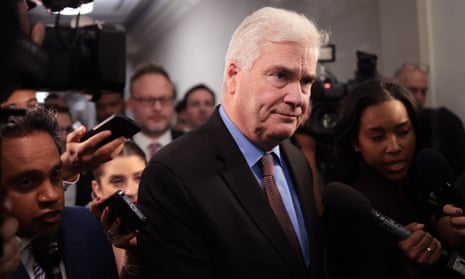A recent poll has unveiled a significant shift in political preferences among Latino voters, with former US president Donald Trump gaining ground and narrowing incumbent Joe Biden's lead within this crucial and diverse voting bloc.
According to a survey conducted by USA Today and Suffolk University, Trump now enjoys 39% support among surveyed Latino voters, surpassing Biden's 34%. This marks a substantial decline for Biden, who secured 65% of Latino voters' approval in 2020.
The data also exposes a broader trend of diminishing support for Biden across various demographic groups, including young voters. The decline in Latino support is particularly concerning for Democrats, hinting at potential challenges in maintaining a key segment of the electoral coalition that propelled Biden to victory in 2020.
Trump is also making inroads among young voters under 35, securing 37% support compared to Biden's 33%. This signifies a significant shift from 2020 when Biden held a commanding 24-point lead in this age group.
Despite the decline in support for Biden among these voter groups, the poll indicates that they are more inclined towards third-party candidates rather than Trump. In the survey conducted from December 26 to 29 among 1,000 likely voters, 20% of Hispanic and Black voters expressed support for candidates other than Trump or Biden, mirroring the sentiment of 21% of younger voters.
A CNBC All-America Economic Survey in December echoed this shift among Latino voters, revealing Trump's five-point lead in a hypothetical head-to-head matchup. This eroded Biden's previous seven-point lead in October, indicating a decline in overall approval among Latino voters from 35% to 28% between October and December.
Historical data suggests that Trump tends to fare better with Latino voters during periods of economic stress. These poll results raise concerns for Democrats regarding their influence over this crucial demographic.
Interestingly, Trump's increased support persists despite his adoption of anti-immigrant rhetoric reminiscent of his 2016 campaign, including language reminiscent of far-right dictators. Trump has outlined plans to strengthen his administration's strict immigration policies, proposing measures such as redirecting federal law enforcement to immigration enforcement and relocating troops to the southern border.
Additionally, Trump has pledged to reinstate and expand travel bans targeting Muslim-majority and African countries, along with the possibility of detaining undocumented immigrants in the US awaiting deportation. These proposals indicate a resolute stance on immigration that, despite its controversial nature, appears to resonate with a growing segment of Latino voters.



